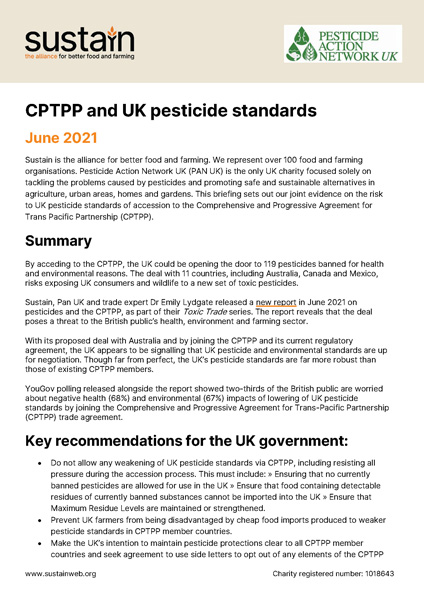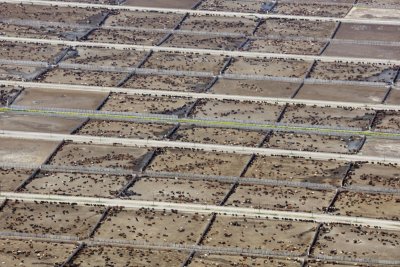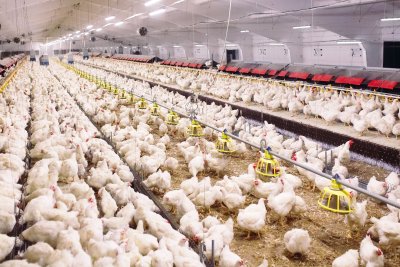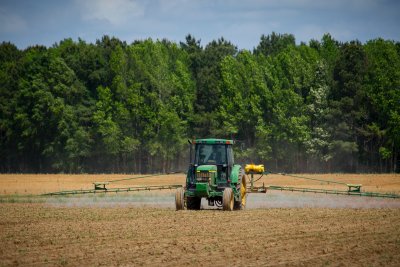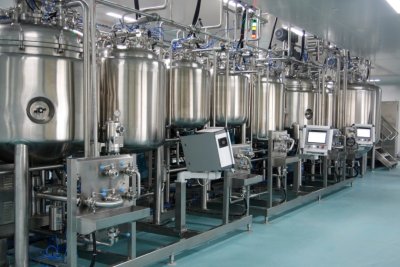By acceding to the CPTPP, the UK could be opening the door to 119 pesticides banned for health and environmental reasons. The deal with 11 countries, including Australia, Canada and Mexico, risks exposing UK consumers and wildlife to a new set of toxic pesticides.
Sustain, Pan UK and trade expert Dr Emily Lydgate released a new report in June 2021 on pesticides and the CPTPP, as part of their Toxic Trade series. The report reveals that the deal poses a threat to the British public’s health, environment and farming sector.
With its proposed deal with Australia and by joining the CPTPP and its current regulatory agreement, the UK appears to be signalling that UK pesticide and environmental standards are up for negotiation. Though far from perfect, the UK’s pesticide standards are far more robust than those of existing CPTPP members.
YouGov polling released alongside the report showed two-thirds of the British public are worried about negative health (68%) and environmental (67%) impacts of lowering of UK pesticide standards by joining the Comprehensive and Progressive Agreement for Trans-Pacific Partnership (CPTPP) trade agreement.
Key recommendations for the UK government:
• Do not allow any weakening of UK pesticide standards via CPTPP, including resisting all pressure during the accession process. This must include: » Ensuring that no currently banned pesticides are allowed for use in the UK » Ensure that food containing detectable residues of currently banned substances cannot be imported into the UK » Ensure that Maximum Residue Levels are maintained or strengthened.
- Prevent UK farmers from being disadvantaged by cheap food imports produced to weaker pesticide standards in CPTPP member countries.
- Make the UK’s intention to maintain pesticide protections clear to all CPTPP member countries and seek agreement to use side letters to opt out of any elements of the CPTPP Agreement that reduce the UK’s regulatory autonomy over food and environmental standards, including pesticide regulation.
- Publicly acknowledge that CPTPP follows a US approach to pesticides and, as such, would set a precedent as the UK’s first departure from its current, more precautionary approach to regulating pesticides.
- Ensure that accession to CPTPP takes place in the open with the opportunity for full parliamentary and public scrutiny. This should include a meaningful role for MPs, Peers and the devolved administrations in the accession process.
- Introduce additional legislative protections to ensure that any change to food safety standards or environmental protections subsumed in trade agreements can only be introduced via primary legislation.
Good Food Trade Campaign: Campaigning for good trade that benefits people and the planet at home and overseas.
Sustain
The Green House
244-254 Cambridge Heath Road
London E2 9DA
020 3559 6777
sustain@sustainweb.org
Sustain advocates food and agriculture policies and practices that enhance the health and welfare of people and animals, improve the working and living environment, promote equity and enrich society and culture.
© Sustain 2024
Registered charity (no. 1018643)
Data privacy & cookies
Icons by Icons8
